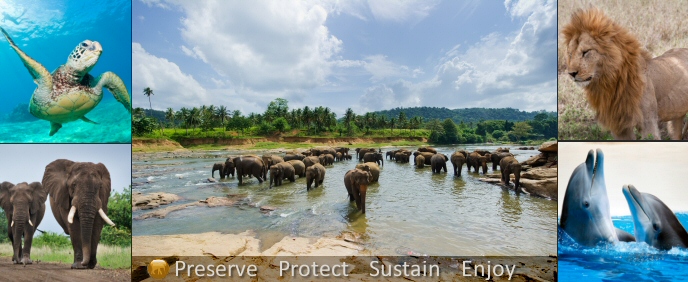
Eco Tours in Brazil - Sustainable Tourism & Conservation Laws
Brazil is home to one of the most popular ecotourism destinations on Earth: the Amazon. The river itself and the surrounding jungle are a major draw for thousands of tourists every year. Everything from structured day hikes from jungle lodges to extended treks are very popular. Since the area is already under substantial pressure from logging interests, the country of Brazil has taken a few specialized measures to help mitigate the damage of this ever-growing influx of tourists.
One of the most substantial pieces of environmental legislation in Brazil is the Environmental Crimes Law. While it sounds like a very sweeping law that focuses on things like industrial waste and unscrupulous resource development, it is actually much simpler than that. The law deals primarily with the protection of the plant and animal species that live within the country. It doesn't solely deal with the protection of rare species, however there are provisions to mete out harsher punishments for breeches of the law that involve these species. Basically, the law states that no person, without the possession of a permit issued by the government, may willingly or knowingly be a party to the removal of wild animals or plants from their natural environment in the country of Brazil. While this is fairly straightforward, there are a few cultural provisions in the law that are of particular note for foreign travelers. For example, removing wildlife from protected areas carries with it the possibility of six months in jail and fine. However, if you commit the same offense on a Sunday or a holiday, it qualifies as an aggravated offense and is punishable by double the jail time and fines.
Also, the National Law Number 6938 of 1981 establishes the Brazilian policy on the environment. This indirectly influences the legality of ecotourism in Brazil by way of setting down policies through which the environment can be developed, and how it should be protected. It's an outgrowth of the far larger Amazon Cooperation Treaty. The “ACT� is a cooperative agreement between the major countries that are most heavily influenced by the Amazons resources and tourism draw. It sets down guidelines through which ecotourism must be developed, including the benefits that ecotourism must have for the local peoples that inhabit the forests of the Amazon, as well as the benefits it must have for the participating countries. The agreement seeks to engender cooperation between these countries that can not only enhance the livelihoods of locals, but also make tourism in the region a much more accessible enterprise.
For hardy ecotourists, there is much to see in Brazil. The Amazon is one of the most ecologically diverse forests on Earth, with new species of plants and animals being found daily within its borders. The pristine nature of the beaches, rivers, forests, and rural villages lays in stark contrast to the densely populated cities that dot the landscape. While Brazil has a number of great cultural and ecological wonders, there is no doubt that the Amazon is one of the biggest draws that this immense country has to offer. The jungle provides a great resource in terms of timber, but it also provides employment and tax income through the huge tourist draw it creates.
Since the Brazilian legal system is based largely upon the Portuguese civil system, many tourists find themselves unwittingly trespassing in Brazil every year. The most widely cited reason from tourists for why they got into trouble while in Brazil is that they never thought that there was a law against what they were doing. It's important to not only understand the laws of the country that you're visiting, but also the cultural implications of those laws as well. Laws are not merely static words on pieces of paper, and they are almost always open for interpretation by whoever happens to be in charge at the time. If tourists take the time to educate themselves on the purpose behind the law, and not simply the law itself, this will influence the way they approach situations while in-country. As a result, they'll be taking a big step toward having a problem-free trip.

